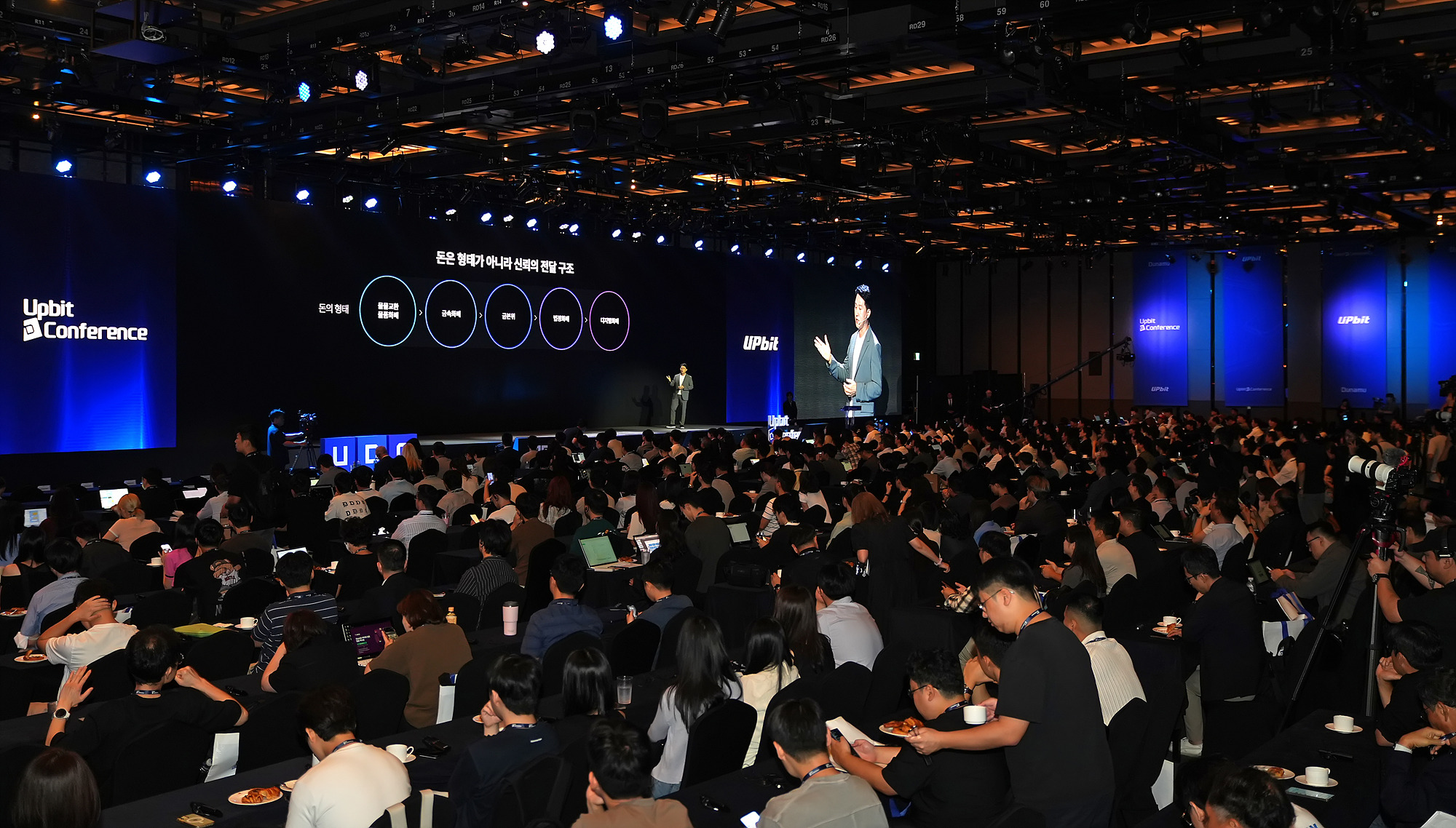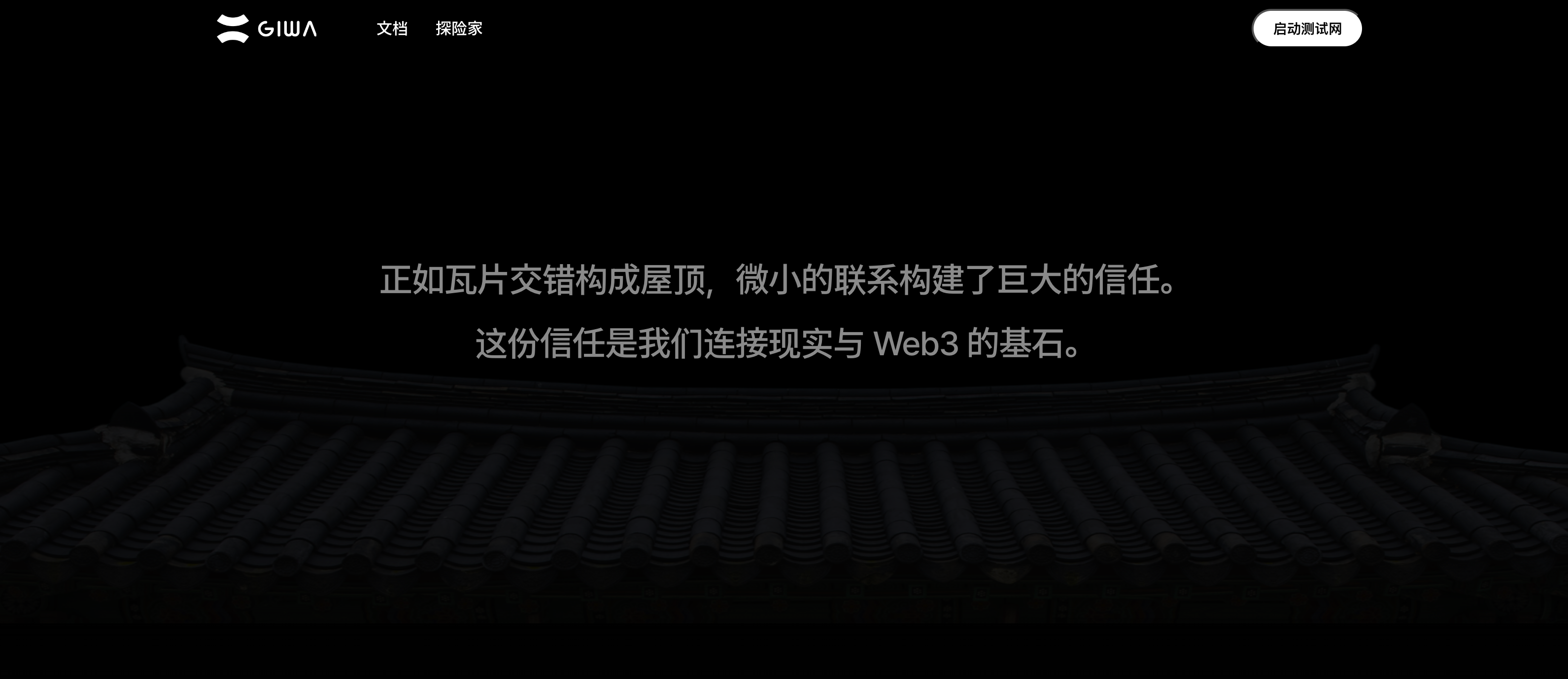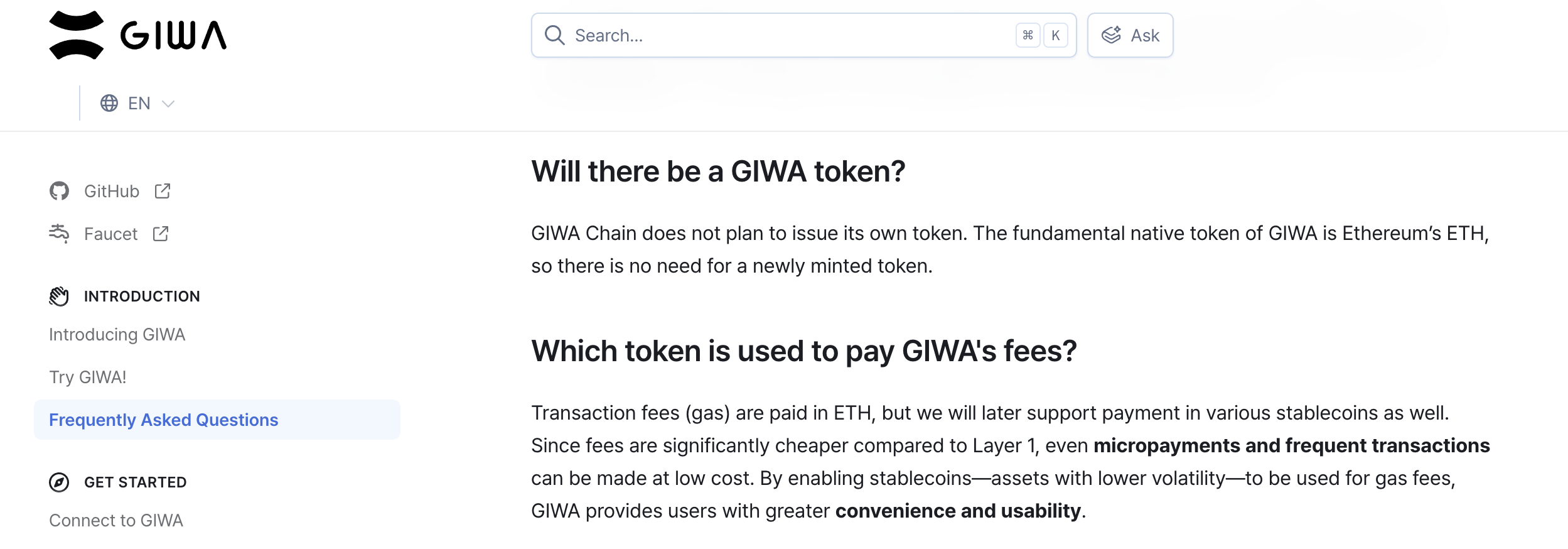By Zen, PANews
Original title: From exchanges to stablecoin infrastructure: Upbit enters the market with its "coinless" L2 chain GIWA , competing head-on with shareholder Kakao ?
"Giwa" is a common tile used in traditional Korean architecture. Made primarily of fired clay, it's widely used on the roofs of palaces and temples. Now, the term has been given a new meaning in the Web3 industry: the self-built L2 public blockchain of Upbit, South Korea's largest crypto exchage.
On September 9th, the annual Upbit Developer Conference (UDC 2025) was held. With the GIWA public chain announced a day in advance, information about the blockchain undoubtedly dominated the conference. At the conference, Upbit operator Dunamu officially unveiled its Layer 2 blockchain, dubbed "GIWA," and the "GIWA Wallet."
First layout of on-chain infrastructure, building Ethereum L2 based on OP stack
Upbit's parent company, Dunamu, has been expanding its presence in the fintech and Web3 sectors in recent years. The launch of GIWA can be seen as a strategic extension of its focus from exchange operations to blockchain infrastructure development. Dunamu CEO Oh Kyung-seok called it "a golden opportunity to leverage our strengths and aggressively enter the global market."
GIWA is an abbreviation of “Global Infrastructure for Web3 Access”, and its connotation also coincides with the traditional Korean roof tiles “giwa”.
GIWA (tiles) became the inspiration for brand and logo design
"Just as layers of tiles formed a solid roof and protected our ancestors, GIWA embodies our commitment to becoming a blockchain that can securely protect the data accumulated on the blockchain," said Oh Kyung-seok at UDC 2025.
According to official documentation, GIWA utilizes the OP Stack architecture and is positioned as a Layer-2 chain within the Ethereum ecosystem. The network plans to achieve a block time of approximately one second and support full EVM compatibility, meaning existing Ethereum smart contracts can be directly migrated and deployed on GIWA. Currently, GIWA has launched its testnet, "GIWA Sepolia," a Layer-2 network connected to Ethereum Sepolia.
Song Won-jun, product manager of Dunamu Crypto, said that scalability, reliability, liquidity and convenience will serve as the four pillars of GIWA.
The accompanying GIWA Wallet focuses on optimizing user experience, featuring a low threshold and emphasizing intuitive usability, including email-based login, easy key management, and ID-based remittances.
Launching a chain without issuing a coin: a compliant choice under regulatory pressure
Whether to issue a token has been a key concern for the community, and GIWA has given a clear answer: no. Official documentation states that GIWA's native token is Ethereum's ETH, so there is no need to issue a new token.
This decision was not a technological choice, but rather a direct response by Dunamu to South Korea’s crypto regulatory environment.
South Korean regulators have long maintained a strict stance on crypto asset regulation due to a surge in fraud cases. In 2021, the Financial Services Commission (FSC) proposed amending the law to prohibit domestic crypto exchage from listing their own tokens. This move directly led to the delisting of several exchange tokens, including the Maro token, produced by Dunamu, the operator of Upbit.
In addition, South Korea subsequently introduced regulations such as the "Virtual Asset User Protection Act" to further strengthen the compliance requirements for virtual asset operators.
Against this backdrop, Upbit's GIWA platform was forced to maintain its strategy of not issuing a platform token. The GIWA documentation states that network transaction fees (Gas) will be paid in ETH, which will be significantly lower than Layer 1 fees, enabling low-cost transactions for both small payments and frequent transactions.
In addition, officials revealed that GIWA plans to support the Paymaster function in the future to enable users to pay transaction fees in multiple stablecoins, providing greater convenience and usability.
Dunamu seeks diversified development to break away from single business
The reason why Dunamu launched GIWA is obvious, that is, as global exchanges continue to expand their boundaries, they are also exploring ways to break through the single business of trading.
South Korea's stringent regulatory policies and listing requirements have become a major growth bottleneck for Upbit. Dunamu previously established an investment subsidiary, Dunamu & Partners, to support promising blockchain projects, but regulations prohibiting corporate investment have prevented any substantial activity. Consequently, the platform has become extremely dependent on transaction fees. In the first half of this year, Dunamu's reliance on platform fees reached 98%.
In terms of coin listing support, South Korean exchanges, represented by Upbit, often exclude local blockchain projects. According to the Korea Daily, since 2021, of the 793 cryptocurrencies listed on Upbit, Bithumb, and Coinone, only 41 were issued by domestic operators. Upbit has listed a total of 133 cryptocurrencies, none of which were issued by South Korean operators.
The NXPC token of the popular Korean blockchain game "MapleStoryN" was listed on Upbit primarily because Nexon established "Nexon Universe Global" and a specialized blockchain company, "Nexspace," in the UAE, making NXPC an overseas token that could be "exported and then sold domestically."
In terms of exchange-based non-coined blockchains, Coinbase is a ready-made successful template. Its Base chain is also built on OP Stack. It is estimated that Base earned more than $60 million in revenue in 2024 from the sorter.
For this reason, Upbit has been committed to diversifying its revenue structure and has finally broken away from its simple fee-based business model by launching GIWA, entering the blockchain financial infrastructure market.
Competition with shareholder Kakao: South Korea's stablecoin sector enters a white-hot stage
As stablecoins gain popularity, the blockchain infrastructure that supports them will become more accessible to the general public, transforming existing financial services like payments, asset management, and capital markets into Web3-based services. For GIWA, which prioritizes compliance, establishing a presence in the stablecoin ecosystem is clearly a top priority. Official documentation states, "GIWA strives to become a hub for the Korean won and global stablecoins, continuously improving usability and promoting financial innovation."
Oh Kyung-seo, CEO of Dunamu, further stated: “Upbit’s spot trading volume has reached 1.74 trillion won, with a cumulative user base of 12 million. Its infrastructure can execute 20,000 transactions per second. If Upbit issues a Korean won stablecoin, it will create opportunities for Korean finance to enter the Asian and even global markets.”

Dunamu's entry into the stablecoin market signals a fierce competition in South Korea's digital finance sector. Dunamu's biggest competitor is its shareholder, South Korean tech giant Kakao. According to Korea JoongAng Daily, Kakao held approximately 7.6% of Dunamu's shares as of 2021.
In recent years, Kakao has been steadily advancing its stablecoin and blockchain initiatives. Its subsidiary, KakaoBank, has applied for trademarks for Korean won stablecoins, including "BKRW" and "KRWB," aiming to capture the South Korean stablecoin market. Kakao's Ground X launched the Klaytn blockchain in 2019. The resulting KAIA platform (a product of a merger with Line's blockchain) already supports the issuance of stablecoins like USDT. The company also plans to integrate its stablecoin wallet into KakaoTalk, leveraging its 20 million+ users.
Dunamu previously announced a partnership with South Korean search engine giant Naver to develop a Korean won-based stablecoin payment system. A Dunamu spokesperson stated that the project will be led by Naver's mobile payment platform, Npay, with Dunamu playing a supporting role. The two companies intend to finalize the details and scope of their collaboration once the regulatory framework is finalized.
Twitter: https://twitter.com/BitpushNewsCN
BitPush TG discussion group: https://t.me/BitPushCommunity
Bitpush TG subscription: https://t.me/bitpush







